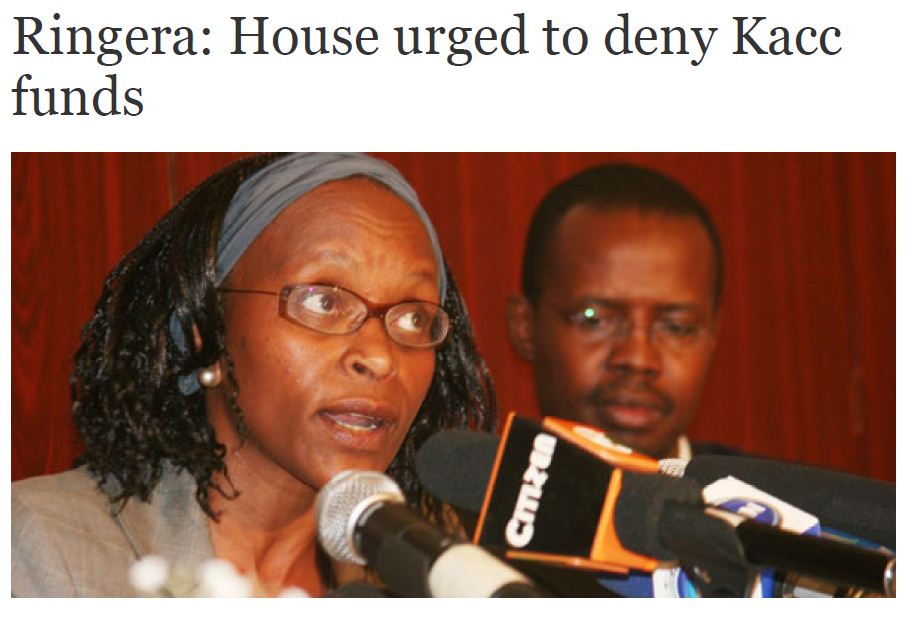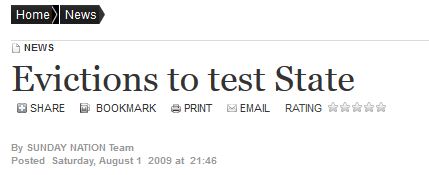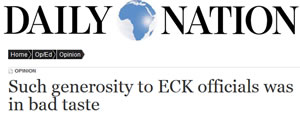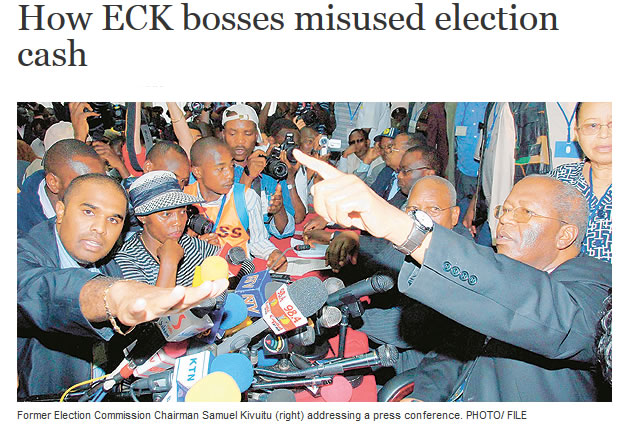Daily Nation, 1 September 2009 – Parliament urged to deny Ringera’s KACC funds
September 1, 2009, Nairobi: Parliament has been urged to deny the Kenya Anti-Corruption Commission funds to run its affairs. The call was made by anti-corruption lobby groups as outrage over Justice Aaron Ringera’s reappointment intensified.
Terming the president’s decision to re-appoint Mr Ringera and his deputies, Ms Fatuma Sichale and Smokin Wanjala as a “reward to ineptitude and complicity with corruption,” Transparency International country director Job Ogonda and Ms Gladwell Otieno from the African Centre for Open Governance demanded that Parliament and the KACC advisory board act fast to reverse the move.
They argued that by reappointing Ringera and his team, President Kibaki had flouted the law that vests powers to identify and recommend KACC directors for appointment in the commission’s Advisory Board and Parliament. The law only allows the President to formally appoint persons recommended and approved by the KACC advisory board and Parliament respectively.
“The Anti-Corruption and Economic Crimes Act, 2003, clearly stipulates a chain of events leading to the appointment of the director. This gives to the Advisory Board of the Commission and not to the President, the power to recommend the director. Thereafter the nominee must be approved by parliament. Only then should the President appoint the director,” the lobbyists said.
They demanded that Parliament shoots down the vote relating to the commission’s finances if the president fails to reverse his decision which it termed “mischievous”.
Under the new standing orders adopted by the House last December, Parliament can reject the votes for various ministries, government departments and agencies or even government officials whose performance it deems as unsatisfactory.
Such a move would financially cripple the affected government agency or official. Speaking at a press conference, lawyer Harun Ndubi urged Parliament to exploit its powers to deny KACC funds. “Parliament is capable of refusing to give this commission funds because it is moribund,’ said Mr Ndubi.
The lobbyists accused the president of acting with impunity by reappointing Ringera and his team against the law, noting that the move greatly undermined the independence of the commission.
“By unilaterally purporting to reappoint Ringera, Mwai Kibaki has attempted to deal the independence of the Commission and its advisory board the decisive death-blow,” said Ms Otieno.
“Aaron Ringera, who has in any case never attempted to demonstrate any independence from the Executive will now be even more clearly beholden to the president who has re-appointed him to his, slightly less lucrative, but nonetheless apparently still desirable post,” she went on.
The lobbyists recalled that the President had previously treated the KACC advisory board with contempt
and challenge it to redeem itself by rejecting Mr Ringera’s re-appointment.
They cited the President’s move to exclude the name of former Mandera Central MP Billow Kerrow when he announced the new members of the board in June this year.
Download Press Clipping Here
September 1, 2009, Nairobi: Parliament has been urged to deny the Kenya Anti-Corruption Commission funds to run its affairs. The call was made by anti-corruption lobby groups as outrage over Justice Aaron Ringera’s reappointment intensified.



